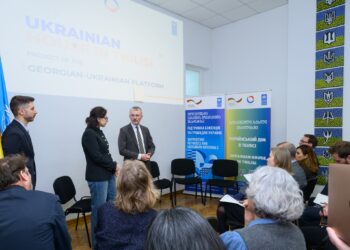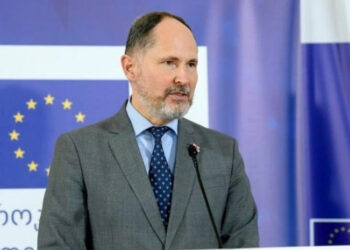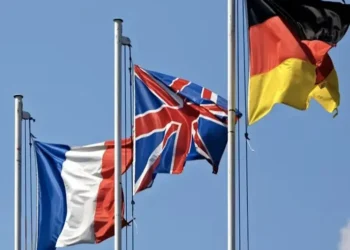When you don’t have someone influential or well-connected in your life, when you grow up in a middle- or low-income family, or even in a working-class household where your parents work tirelessly, like workaholics, just to meet basic needs, and even if toxic relatives can cloud the environment around you, the only true power that the younger generation can rely on is education. Education becomes the one tool that can break through the barriers of circumstance, offering the chance for self-discovery and the hope of a better life.
At first, you don’t even dare to dream of competing on a global scale, or accessing prestigious Western education. Your first dream is simply to attend university, to earn any form of higher education. For many of my country’s younger generations, the most basic dream is to secure a scholarship to study at a national university, to gain a degree, and to establish a future based on that knowledge. Whether the quality of education is exceptional or less than ideal, it becomes a powerful passport to the future, a tool that helps you navigate life’s challenges and understand your own struggles. Education becomes a metaphorical visa, opening doors to a world of possibilities, even when physical borders remain closed.
All the struggles, the journey to understand yourself, to define your identity and to earn recognition, become surmountable through access to a great education system. It is within this system that you unlock your potential, discover inspiration, and chart a meaningful path forward. For those of us facing systemic challenges, education is not just an option; it is the gateway to a better future.
When you’re lucky enough to be part of a university that offers international exchange programs and promotes student activities and projects, opportunities open up in ways you never imagined. And if you get lucky enough to be in such a university, you have a golden opportunity. If you’re wisely active, smart, and able to seize these moments in given opportunities, you can use them to build a solid foundation for your career. These experiences help you develop essential skills, expand your network, and gain a global perspective, all contributing to long-term success and career establishment. It’s all about making the most of the resources and opportunities available to you.
And when you see the struggle intensify within your education system, which is failing due to the mistakes of your government leaders, it becomes even more frightening. The fear that national education will no longer be recognized abroad, or that exchange programs will become a distant dream, is real. Education, once a powerful tool for personal development and career advancement, now seems like an uncertain path.
Yes, there are opportunities if you have access to the internet, free online courses offered by various global universities. But even with these, it’s not enough if the education system in your country is falling apart. It’s a struggle that leaves educated individuals, no matter how resourceful they are, facing an uphill battle.
This is the reality Georgia now faces: the country is in danger of losing its position within the European educational space. The European EQAR registry has suspended the registration of Georgia’s National Center for Educational Quality Enhancement (NCEQE). This is a massive blow, a direct result of the lack of confidence in the accreditation system, reputational damage, loss of trust, complication of planned international educational programs, which will stretch the process over time, and the suspension of opportunities like double degree offerings and student exchanges.
The consequences are far-reaching. This situation threatens the international mobility of students, undermines the quality of education, and damages the credibility of Georgian universities on the international stage, casts a shadow over the global recognition of Georgian diplomas. Most crucially, it poses a risk to Georgia’s European integration.
The results of the suspension of NCEQE registration by EQAR (European Quality Assurance Register for Higher Education) has been widely discussed by local education experts. They have emphasized the serious consequences this decision may have for Georgia’s higher education system, particularly in terms of the international recognition of Georgian degrees and the country’s broader European integration efforts. The suspension highlights concerns about the political influence on Georgia’s accreditation system.
The suspension comes as a result of violations of European quality assurance standards, with accusations that Georgia’s NCEQE is “not free from political influence” and is being used as a tool for political pressure on universities, further weakening the integrity and credibility of the entire educational structure. This is a warning, a pivotal moment in Georgia’s educational journey.
A week before the suspension of Georgia’s education accreditation, Tbilisi hosted a powerful march titled “With Western Education Towards Europe!” Starting at Ilia State University, it brought together graduates, students, alumni, and professors from Western and US institutions, including the EPAG alumni association. Marching from the EU Embassy to Parliament, they demanded new elections, a return to a pro-European foreign policy, and the release of political prisoners. With banners reading “Education is the Most Powerful Weapon to Change the World,” the protesters called for the protection of academic freedom, quality education, and Georgia’s democratic future, reflecting a collective hope for a future based on liberty and justice.
The Georgian people’s overwhelming support for European integration underscores their belief in its promise of democratic governance, economic opportunity, and national security. However, this vision is at risk. Georgian Dream’s series of anti-democratic actions, failing to transparently investigate election irregularities, enacting laws that suppress freedoms of assembly and expression, and recently suspending Georgia’s EU accession process, have severely undermined the nation’s Euro-Atlantic path.
On 28 November, Prime Minister Irakli Kobakhidze announced that Georgia would not initiate accession talks with the EU until 2028. He declared that the country would also refuse any EU funds, claiming that EU funding has been used as a tool of blackmail, which led to its rejection, while for Tbilisi, viewing integration with the EU as a mere act of charity is unacceptable.
This decision was more than just a political move; it marked a deep betrayal of the Georgian people’s constitutional promise to pursue full integration into the European Union and NATO. By halting the EU accession process, Georgian Dream ignored the will of its citizens, weakened Georgia’s international standing, and made the country more vulnerable to Kremlin influence. These actions threaten Georgia’s sovereignty and its aspirations for a democratic and secure future.
The announcement on 28 November shocked the Georgian people, sparking a wave of resistance determined to protect democracy, justice, education, and a European future. Protests have continued for 24 days, driven by growing discontent over Georgian Dream’s controversial actions, such as the introduction of the Foreign Agents Law in April, condemned as a threat to free speech and civil society. The first week following the announcement saw growing tensions, with protests met by unlawful force, including tear gas, rubber bullets, and water cannons. Riot police arrested and assaulted protesters, injuring many, including journalists, highlighting the government’s hostility toward media coverage.
Despite these challenges, the Georgian people remain resolute in their fight for democratic values and a European future.
In this moment of crisis, the country’s hope lies in the self-motivated citizens protesting in the streets, united for democracy and a European future, and in the leadership of President Salome Zurabishvili. Amid this turmoil, Georgia faces a divide between two figures claiming authority: Mikheil Kavelashvili, installed by Georgian Dream, and Zurabishvili, the legitimate president, who stands as a beacon of hope for the people.
President Zurabishvili, known as the “People’s President,” has become a key figure in Georgia’s fight for democracy. A strong advocate for Georgia’s European aspirations, she has earned support from the EU Parliament, European institutions, and diplomats. She fiercely criticized Georgian Dream’s decision to halt the EU accession process, calling it a “constitutional coup” and a shift toward a pro-Russian course.
Zurabishvili has refused to recognize the legitimacy of the current government and aligned herself with the people in their struggle for rights and European integration. Her leadership provides hope as citizens rally to preserve their sovereignty, education, and democratic values.

During the last 24 days of protests, it has been inspiring to witness the self-organized support and actions of Georgian citizens. Their creativity shines through in activities such as dancing, united marches by people from different professions and segments of society, and voluntary food deliveries. Over the past week, representatives from various regions, including Kakheti, Samegrelo, Kartli, and Svaneti, have organized their own marches. People from diverse professions, such as IT, historians, artists, and PR and marketing specialists, have united in protests. Day 24 marked a pivotal moment in Georgia’s modern history, as an unprecedented wave of marches swept through the city, all of them converging once again on Rustaveli Avenue, with over twenty marches taking place in a single day, bringing nearly 200,000 protesters in front of the parliament building.
Initiatives like “Happy EU Year GE” (happyeuyear.ge) have emerged, supporting small entrepreneurs, uniting those who refused to participate in the City Mayor’s Christmas market. Web platforms that promote free business (freebusiness.ge), and also ertobit.ge offer services such as free psychological and legal assistance, among others. Another notable initiative is the self-organized platform “GZA,” managed from Germany instagram.com/gza.europe, which has become a source of inspiration for emigrants.
It is also inspiring and motivational to see the creativity of my Georgian people standing strong, even among the city’s New Year decorations. Against this backdrop, peaceful performances and creative protests have emerged, embodying a spirit of resilience. One day, these acts of solidarity could well become a source of inspiration for films, showcasing the unbreakable warrior spirit of Georgian citizens. Even the administrators of the European Parliament’s Facebook page were shocked by the actions of my country’s citizens, with over 100,000 reactions and expressions of support.
And myself as a young activist and committed future EU citizen and educator, who believes in the power of education and the future of EU-Atlantic integration- I stand with my people for common values like democracy, justice, and fair elections. As someone who deeply understands the transformative power of education, I want to highlight the challenges I am currently facing. As already reported by Georgia Today, I am struggling with significant financial barriers in my pursuit of a Master’s in Public Policy at the Hertie School. Due to the current circumstances, I have been forced to postpone this goal, but my determination remains unwavering.
I must mention how incredibly grateful I am for my time at Ilia State University, which opened my eyes and helped me realize my potential. Through opportunities like short exchanges and programs such as Erasmus+, the Sweden Institute’s SAYP program, Leaders Labs, the Institute of Ocean at Malta University, Elda Academy, and Digital Communication-USWorld learning programs, I have come to truly understand the power of education. I deeply believe in giving back to my community, and I hope my journey can serve as inspiration to others. Education has opened many doors for me, and I feel it’s my responsibility to share that knowledge and contribute to the growth of those around me.
I come from a family where hard work was not just a virtue but a necessity. My parents, who worked tirelessly to meet our basic needs, taught me the value of perseverance. However, their financial sacrifices often left little room for dreams beyond survival. Growing up in a middle-income family, I learned early on that we lacked the privileges many take for granted. Yet, amidst all the struggles, one thing became abundantly clear: education was my only way forward. It was my one opportunity to change the narrative, to rewrite my story, and to unlock my true potential.
In those early years, education became my sanctuary. It was a place where I could imagine a life beyond limitations, where I could explore ideas and dream of a brighter future. But it wasn’t just about acquiring knowledge; it was about discovering myself. Each lesson, every book and opportunity, and every challenge revealed a new facet of who I was and who I could become. It was as if each step in my educational journey was peeling back layers to uncover the person I was meant to be.
The turning point came when I had the chance to pursue higher education. This was more than just an academic pursuit; it was an awakening. The rigorous environment, the exposure to diverse perspectives, and the encouragement to think critically and creatively opened my eyes to possibilities I had never imagined. Higher education wasn’t just about earning a degree; it was about finding inspiration. It was about creating a life that felt meaningful and fulfilled, not just for myself but for the community I was part of.
Through education, I found hope, hope that I could overcome the barriers of my circumstances, hope that I could contribute to something larger than myself, and hope that I could inspire others to do the same. It taught me resilience, adaptability, and the importance of lifelong learning. It gave me the tools to not only dream but to act on those dreams.

Looking back, I see how education transformed my life. It helped me rise above the struggles of my upbringing and gave me the courage to face challenges head-on. More importantly, it gave me the ability to recognize my own potential and the confidence to pursue it. Today, as I continue to grow and learn, I carry with me the lessons of my journey, lessons of hard work, perseverance, and the undeniable power of education.
My story is a testament to the fact that education is not just a means to an end; it is a lifelong journey of self-discovery and empowerment. It is the bridge between where you are and where you want to be. And for those of us who come from humble beginnings, it is the ultimate tool to create a life of purpose and fulfillment.
However, the reality Georgia faces today is deeply concerning. With the suspension of the National Center for the Development of Education Quality from the European EQAR registry, our nation risks losing its standing within the European educational space. This is a critical issue that must be addressed swiftly and effectively. Education is the cornerstone of progress, and Georgia must take the necessary steps to restore its place in the global educational community. It is not just about maintaining access to European opportunities; it is about ensuring that future generations have the tools to succeed, build meaningful lives, and contribute to a better world.
Blog by Mariam Avakova














